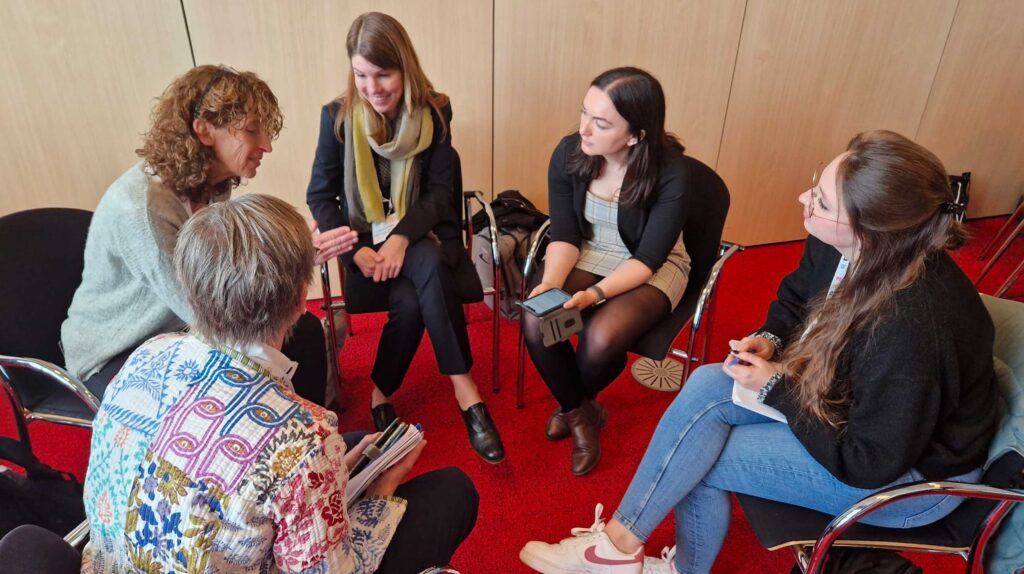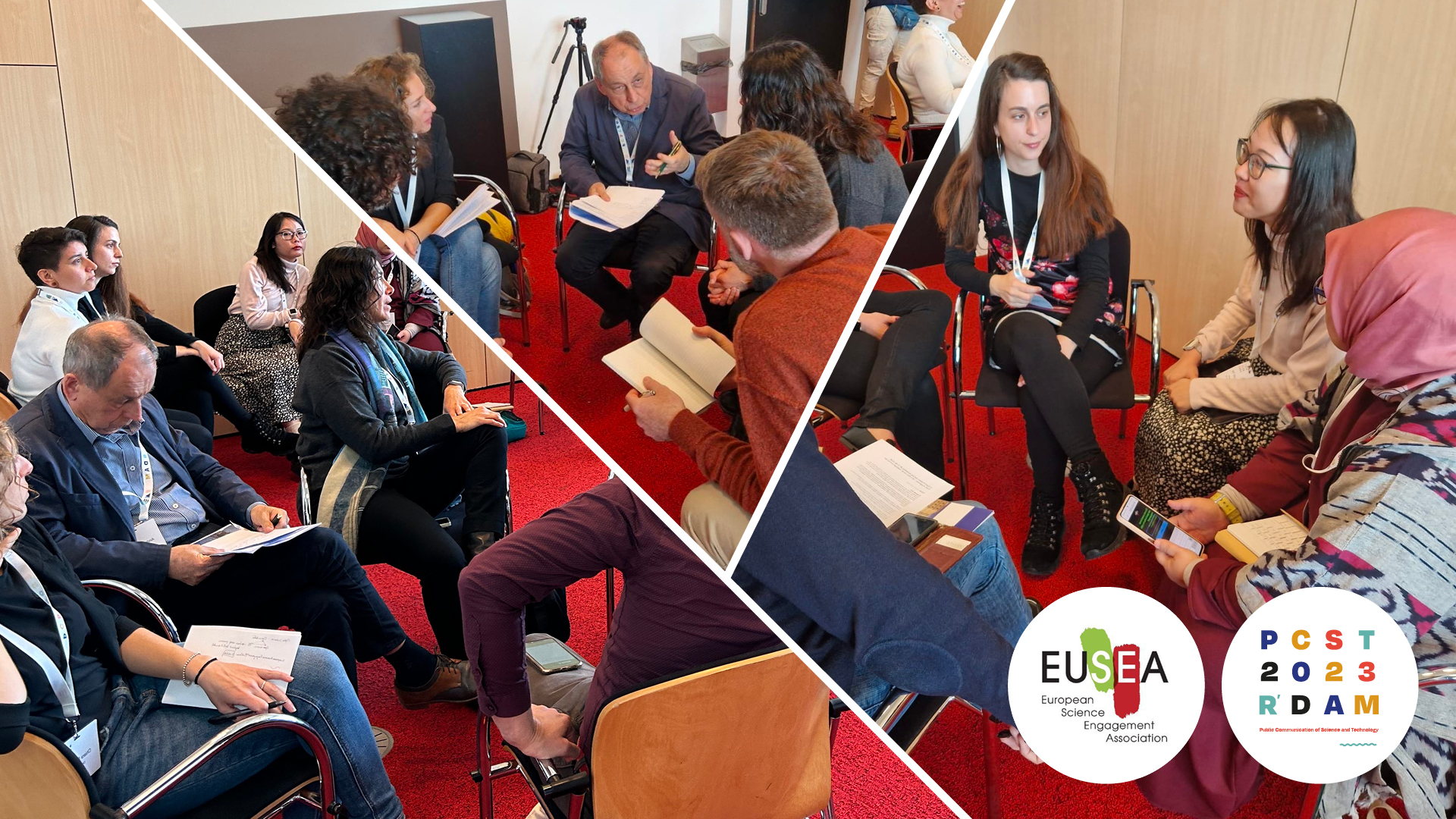The role of emotions, citizen science, art-science collaborations, inclusivity and targeting young people. These are some of the current trends within public engagement, according to participants in a workshop on 12 April 2023, which was part of the PCST, Public Communication of Science and Technology, conference in Rotterdam.
PCST is a global network and also a biannual conference for academics and practitioners within science communication. The workshop, organised jointly by VA (Public & Science) and EUSEA (the European Science Engagement Association), attracted about 30 participants from different countries and continents who shared their views while discussing in smaller groups.
Trends recurrently mentioned were the growing expectations on Public Engagement from funders, learning from and listening to communities, addressing difficult questions, and using multilateral approaches, living labs, social media and mobile devices.
The 193 UNESCO member states have adopted recommendations for Open Science, which countries are expected to implement nationally. The recommendations emphasise that Open Science is not only about Open Access and Open Data, but also encompasses Scicomm, Citizen Science and Public Engagement.
– Therefore, the recommendations can be helpful when discussing Public Engagement with research performing and funding organisations, said Cissi Askwall, Secretary General of VA and President EUSEA.
The UNESCO recommendations can be helpful when discussing Public Engagement with research performing and funding organisations.
Cissi Askwall, Secretary General of VA and President EUSEA.
Many participants had their own experiences of lacking resources, time, knowledge and skills for Public Engagement. Other obstacles and challenges mentioned were difficulties reaching hard-to-reach groups, not using existing results and experiences, thinking science is too complex for people, language barriers, missing institutional structures and too high expectations.
Listen → learn → adapt → invite → include
Participants also shared their top tips for Public Engagement. Among them were:
- Be relevant to people and relate to everyday life
- Bring community leaders on board
- Make the diversity within the scientific community visible
- Listen to the group you want to engage with
- Engage with people where they are
- Be very target group specific
- Engage role models
- Listen -> learn -> adapt -> invite -> include
- Plan PE activities from the very start of a project.

Everyone was encouraged to submit their preferred Public Engagement formats to be included in the European Science Engagement Platform.
– It is a co-created collection of resources, dialogue formats, good reads and toolkits, freely available online and continuously developed by EUSEA, explained Philipp Burkard, Director of Science et Cité in Switzerland and Treasurer of EUSEA.
The workshop was facilitated by Annette Klinkert, Executive Director of EUSEA, together with discussion hosts from several networks: Gustav Bohlin, Assistant Secretary General of VA, Edward Duca, Manager of Science in the City in Malta, Catherine Franche, Director of Ecsite (the European network of Science Centres and Museums), Susanne Hecker, First Chair of ECSA (the European Citizen Science Association), Giuseppe Pellegrini, CEO of Observa Science in Society in Italy, and Emma Weitcamp, Professor in Science Communication at UWE Bristol and part of the COALESCE consortium that will develop a European centre for scicomm.

